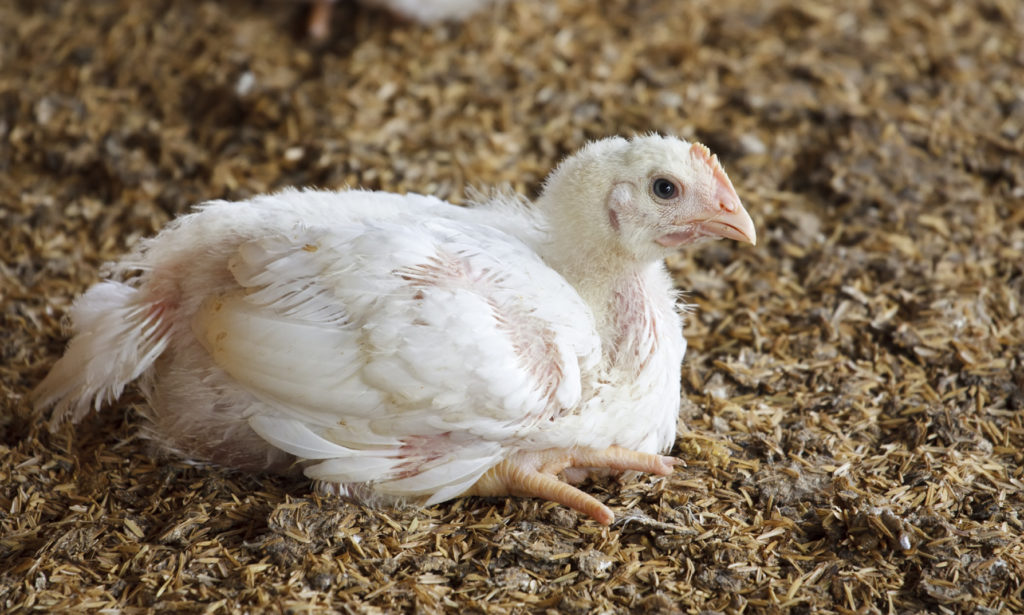حزب من اجل الحيوان طلب من بروكسل حظر تام على سم فيبرونيل
يجب على المفوضية الأوروبية أن تحظر تماما فيبرونيل السم الذي وجد في البيض من الفلاحة في أوروبا. أنجا هازيكامب، النائبة البرلمانية الأوروبية ونيابة عن حزب من أجل الحيوان، قدمت في ذلك طلب لبروكسل خلال مناقشة أزمة فيبرونيل.
فيبرونيل لا يسمح بإستخدامه على الحيوانات في سلسلة الشركات الغذائية في الاتحاد الأوروبي، لكن يمكن الحصول عليه ومسموح به قانونا. هذا السم مسموح استخدامه في الحقول الزراعية. “فيبرونيل يمكن بيعه في أوروبا، وبهذا يمكن بسهولة أن يساء استخدامه لأغراض خاطئة. كنتيجة لذلك تسمم البيض في السوبر ماركت وعلى موائدنا. الحظر الكامل هو أكثر أمانا لصحة الإنسان والحيوان وأفضل لبيئتنا” قالت هازكامب.

قواعد الاتحاد الأوروبي انتهكت بشكل صارخ
أشار حزب من أجل الحيوان إلى أنه لم يتعامل بمسؤولية مع رفاهية مئات الآلاف من الدجاجات التي تبيض والتي تمت معالجتها بفيبرونيل وقتلت الشهر الماضي في هولندا. وقالت هازكامب ان التصفية تنتهك قواعد الاتحاد الاوروبى لحماية الحيوانات ومن ثم فهي غير قانونية. “هذا الدجاج لم يكن مريض ولم يعرض الصحة العامة للخطر، حيث كان هناك ألم، معاناة وإصابات غير ضرورية للدجاج، وهو ما يتناقض مع التشريعات الأوروبية، وأريد أن أعرف كيف ستمنع المفوضية الأوروبية هذه الممارسات في المستقبل، ” حسب هازكامب
يرى حزب من أجل الحيوان في أزمة فيبرونيل الدليل على أن القواعد الأوروبية بشأن رعاية الحيوان وسلامة الأغذية لا تحترم وأن السيطرة غالبا ما تكون غائبة. وقالت انجا هازيكامب “لقد اظهرنا مرة اخرى ان نظامنا الزراعى لا يمكن الدفاع عنه، ولكننى اتوقع أن المفوضية الاوربية تحتاج إلى الكثير من الفضائح من اجل الحصول على نفس الرؤية”.
الخلفية
في يوليوز، تم اكتشاف سم الفيبرونيل في البيض في هولندا وبلجيكا، وبعد ذلك إتضح أن البيض في بلدان أوروبية أخرى ملوث. كما إتضح أن بعض العجول أصيبت بسم مماثل يسمى أميتراز. العديد من البيض ومنتجات البيض تم إزالته من السوبرماركت لأنها تشكل خطرا على الصحة العامة. وردا على هذه الفضائح، دعا حزب من أجل الحيوان مجلس النواب العودة من العطلة البرلمانية الصيفية للناقش. الحكومة الهولندية امرت بفتح تحقيق في فضيحة البيض.
During a debate on the fipronil scandal, Party for the Animals MEP Anja Hazekamp has called on the European Commission in Brussels to ban the insecticide fipronil, found in vast quantities of eggs, completely from European agriculture.
In the EU, fipronil cannot be used on animals destined for human consumption, but it is legally available and authorised for use in arable farming. “Fipronil is freely available in Europe, and can therefore easily be used for inappropriate ends, leading to contaminated eggs ending up on supermarket shelves and our plates. A total ban will be safer for human and animal health and the environment,” said Hazekamp.

A chicken in the poultry industry
Crude violation of EU rules
In addition, the Party for the Animals points out that there has been insufficient regard for the welfare of the hundreds of thousands of laying hens treated with fipronil, which were slaughtered in the Netherlands last month. According to Hazekamp, these killings were in violation of EU rules on the protection of animals, and therefore illegal. “These chickens were neither ill nor a threat to public health. Pain, suffering and injury were unnecessarily inflicted on chickens, which is at odds with European legislation. I would like to know how the European Commission is planning to avoid such practices in the future.”
To the Party for the Animals, the fipronil scandal is further proof that European rules for animal welfare and food safety are not complied with, and that there is hardly any monitoring. According to Hazekamp, the scandal has once again demonstrated the unsustainability of the Dutch agricultural system, but she expects the European Commission to “need many more scandals before coming to the same conclusion”.
Background
In July of this year, eggs tested in Belgium and the Netherlands were found to contain levels of the toxic insecticide fipronil. Soon after, eggs in other European countries also turned out to be contaminated. In addition, it came to light that some calves had been in contact with a similar pesticide, called amitraz. Many eggs and egg products were removed from supermarket shelves because they presented a public health risk. Following these scandals, the Party for the Animals called for the Dutch Lower House to return early from Summer recess for a debate on the subject. The Dutch government has launched an enquiry into the egg scandal.